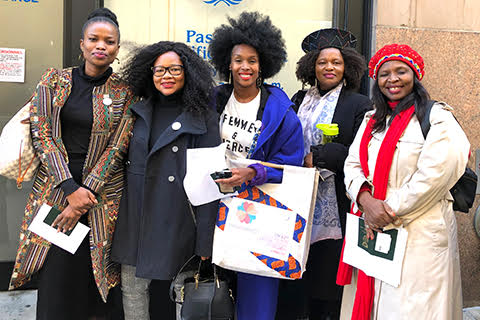UN Women
The Commission on the Status of Women (CSW) was established in 1946 on June 21, as a functional commission of the Economic and Social Council (ECOSOC). Since then, the CSW has been instrumental in promoting women’s rights, documenting the reality of women’s lives throughout the world, and shaping global standards on gender equality and the empowerment of women.

The 63rd CSW convened from 11 to 22 March 2019, at the UN Headquarters in New York, US. This year’s theme was ‘social protection systems, access to public services and sustainable infrastructure for gender equality and the empowerment of all women and girls.’ Nearly 2 000 Member State delegates and 86 ministers attended CSW 63, alongside 5 000 representatives from civil society organisations around the world. South Africa was also represented by its largest contingent to date of over one hundred delegates, including our Ministries of Small Business Development, Women and Social Development.
Coming from a country where gender-based violence and crime are prevalent, and where accessing public services and infrastructure remains top of mind. Limited access to education, unfavourable economic structures, traditions and the disregard of women’s unpaid care work are key challenges that hinder the development of women. The Southern African Gender Protocol Alliance highlights that economic empowerment for women is not just about spending power — it is about more opportunities and can result in keeping children in school, accessing health care and even having the option to leave unhealthy or violent relationships.
One of the events at CSW63 was a call to join the fight against the practice of child marriage. Speakers highlighted that the involvement of the youth is critical in putting an end to child marriages. Another eye-opening session titled ‘Equality in Law for Women and Girls by 2030’ focused on discriminatory laws against women and girls. Discriminatory laws affect over 2.5 billion women and girls around the world, and only six countries around the world give women and men equal legal rights in specific areas of economic empowerment.
SA participated in key discussions addressing gender and parity, women’s economic empowerment through entrepreneurship, women and girls’ safety in cities and responsive public services.
Phumzile Mlambo-Ngcuka, Executive Director of UN Women, closed the gathering with these words: “The annual gathering has never been bigger nor more significant for the women and girls of the world. The Commission’s recommendations pave the way for governments to engage and invest differently; involving women in policy dialogue, and targeting initiatives that go to the heart of the largest barriers to the empowerment and voice of women and girls.”
-